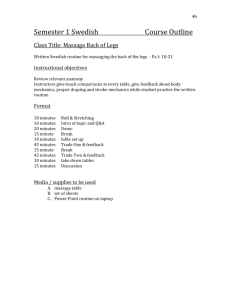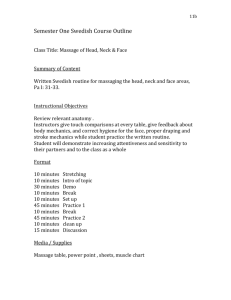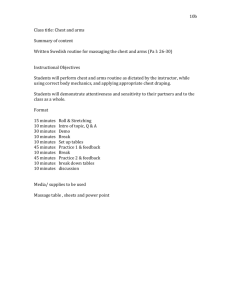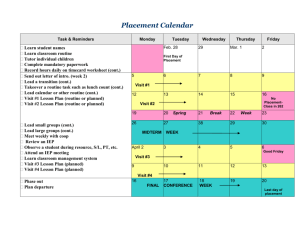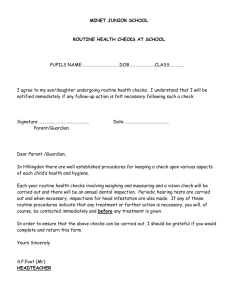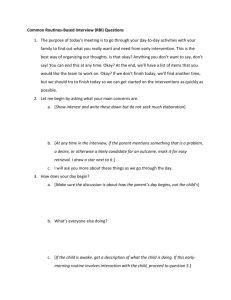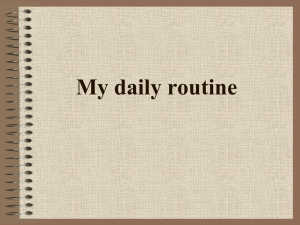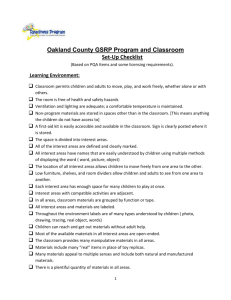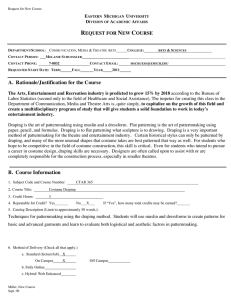08b-Massage-Front-of..
advertisement
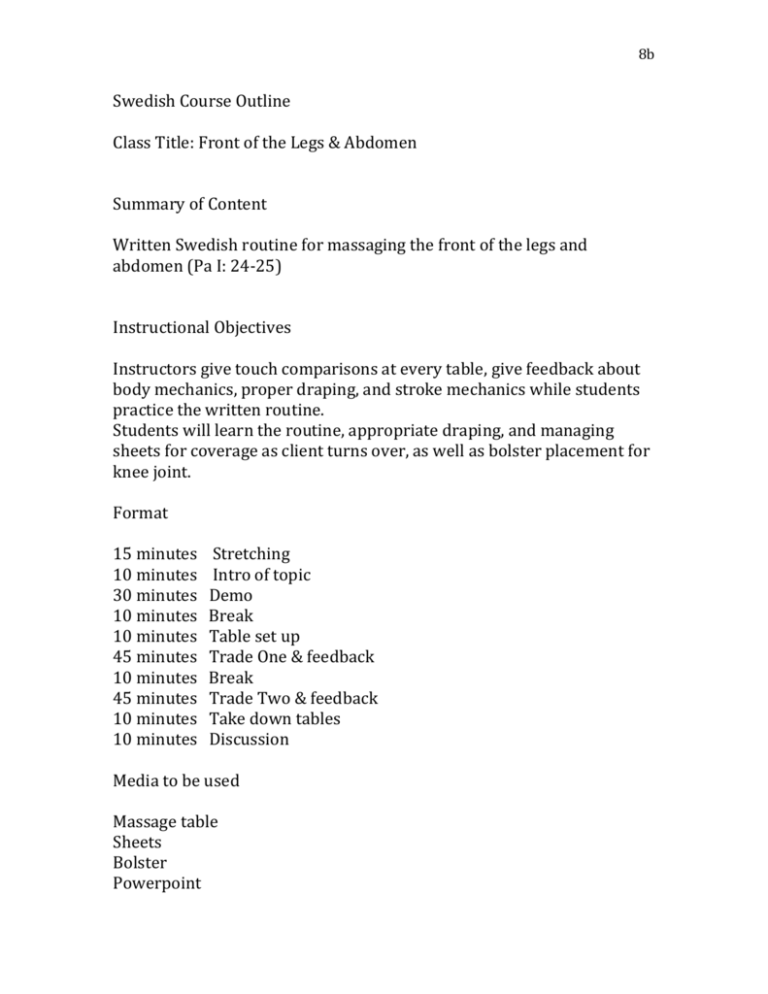
8b Swedish Course Outline Class Title: Front of the Legs & Abdomen Summary of Content Written Swedish routine for massaging the front of the legs and abdomen (Pa I: 24-25) Instructional Objectives Instructors give touch comparisons at every table, give feedback about body mechanics, proper draping, and stroke mechanics while students practice the written routine. Students will learn the routine, appropriate draping, and managing sheets for coverage as client turns over, as well as bolster placement for knee joint. Format 15 minutes 10 minutes 30 minutes 10 minutes 10 minutes 45 minutes 10 minutes 45 minutes 10 minutes 10 minutes Stretching Intro of topic Demo Break Table set up Trade One & feedback Break Trade Two & feedback Take down tables Discussion Media to be used Massage table Sheets Bolster Powerpoint 8b Semester One Swedish Lesson Plan Class Title: Front of the Legs & Abdomen Course and Hours: Swedish 3.5 Stretching Guidelines Overall warm up with emphasis on front of legs and abdominal area (stretches for the quads, adductors, tibialis anterior, hip flexor, rectus abdominus, ankle rotations any relevant yoga stretches, etc.). Encourage awareness of full abdominal movement during breathing. Intro to Topic and Q & A Guidelines Review power point presentation for anatomy of the front of the leg and abdomen. Retinacula will be pointed out around the ankles and the knees. Point out the continuity of fascia around the lower torso (lumbar/abdomen). Introduce the necessity of working this area, while acknowledging the sensitive nature of this area to most people. Discuss different ways to build trust and confidence between the client and the therapist (see draping guidelines, identify specific anatomy & boney landmarks). Discuss the need to communicate with client about abdominal work, and discuss options for initiating sensitive contact here. Demo Guidelines Demo written routine from the packet. Assistant or student will call out the written routine for the demo. Re-demo how to have a person turn over while controlling the sheets to keep them covered, and replace bolster under the knees. Refer to draping guidelines in power point. Define the upper thigh/adductor area – approx. 1/3 to ½ of the medial thigh - as an area not to be specifically worked, due to privacy/modesty concerns. On second leg, the instructor demonstrates routine with little verbal explanation to show the flow of the routine. Demo chest draping for women and perform written abdominal routine, including the 8b transitional stroke (gentle, sensitive melting along sternocostal borders, and out under clavicles) from abdomen to chest. Practical Guidelines Instructors give touch comparisons at every table, give feedback about body mechanics, draping and stroke mechanics while student practices the written routine. Be sure students get comfortable draping for abdomen and front of leg. Make sure the bolster placement is placed behind the knees for the supine position. Discussion Guidelines Encourage student pairs to give appropriate feedback regarding the sense of connection, the ease of handling of the limbs, the pressure of the techniques, the flow of the routine, and the effectiveness and coverage of chest draping. Media Usage Power Point
